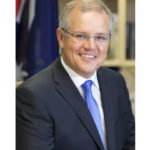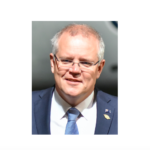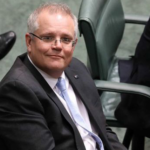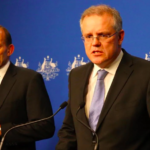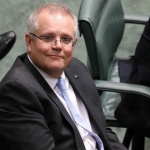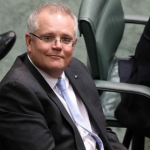Alleged Sexual Assault in Parliament: How Do You Rate the PM’s Handling of the Matter?

Prime Minister Scott Morrison has offered a personal apology and announced a ‘review of workplace culture’ in the wake of allegations that a young Liberal Party staff member was sexually assaulted by a colleague in Parliament House.
But the PM has been criticised for comments which some say suggest a lack of insight into the nature of sexual assault, and even go so far as to ‘victim blame’.
Former staff member Brittany Higgins spoke publicly this week of the alleged sexual assault, which she says too place when she was 24 years old and just four weeks into her job working for Federal Minister Linda Reynolds.
The story so far
Ms Higgins says that after a Saturday night of drinking with other staff members, she and the man she alleges sexually assaulted her were heading home together, when the man said he he needed to stop off at Parliament House to get something.
Ms Higgins says she went inside the building with the man into the office of then defence industry minister Linda Reynolds, despite not having her security pass. She says lay down on the couch and fell asleep after feeling ill, waking up sometime later to the man assaulting her.
The man left the office thereafter, and security personnel found a disoriented Ms Higgins the following morning when she was trying to leave the building. The room was ‘steam cleaned’ in the following days but, at the time, the Department of Parliamentary Services (DPS) did not know a crime may have taken place.
A week later, Ms Higgins was called to a meeting by Ms Reynolds to discuss the incident, in the very same room where she says the assault took place.
Ms Reynolds has addressed the issue in Parliament by saying that her overriding concern throughout the process was to support Ms Higgins’ welfare.
“At all times, guidance was sought from Ms Higgins as to how she wished to proceed, and to support and respect her decisions,” the Minister stated. “Given the seriousness of the incident, consideration should have been made to the location of the meeting with Ms Higgins, and in hindsight that oversight is regretted.”
Ms Higgins says that although she was told she could contact police, and did in fact speak with ACT police, she felt like she was a ‘problem’ and that her personal wellbeing was secondary to the reputation of the party itself.
She says she felt pressured not to make a formal complaint to the police, and believed she would jeopardise her job if she did so.
Ms Higgins has since decided to make a formal complaint to the Australian Federal Police.
PM’s sincerity and honesty called into question
But Prime Minister Scott Morrison has recently come under fire over the way he has handled Ms Higgins’ complaint, with some questioning the sincerity of his apology to the former staffer, and indeed his honesty.
The PM claims to have been completely unaware of the complaint until this week, but a number of people, including former Prime Minister Malcolm Turnbull and current Federal Opposition Leader Anthony Albanese have called Mr Morrison’s integrity into question. Mr Turnbull has told the media:
“I find it inconceivable that that wasn’t well-known to at least key members of the Prime Minister’s staff”.
“If it wasn’t, there was clearly an absolutely baffling breakdown in communications.”
“It strains credulity.”
In addition to this, the PM’s use of certain phrases, including “as a father”, when speaking about sexual assault have been viewed as lacking in insight and understanding when it comes to such matters, with critics expressing the view that being a father is irrelevant and should not be brought into the discussion.
Ms Higgins has been particularly critical of Mr Morrison’s handling of the matter, responding to his statement “information can become confused over time about who makes contact” by saying “[t]he continued victim-blaming rhetoric by the Prime Minister is personally very distressing to me and countless other survivors.”
She believes the proposed internal review is not enough, and has called for an “independent reporting mechanism for staff where they can confidently and safely make complaints — similar to processes in many other workplaces in Australia and abroad.”
Human Rights Commission Report
It’s not the first time that the highest echelons of government have been rocked with allegations of sexual assault, sexual harassment or sexual misconduct. And this is not an issue isolated to the Liberal Party.
Last year, The Australian Human Rights Commission released its long awaited findings into the landmark inquiry into sexual harassment in Australian workplaces, which was instigated on the back of the #MeToo movement, when victims of sexual assault from all over Australia began to speak out about the prevalence of sexual harassment in their working environments.
The inquiry, led by Sex Discrimination commissioner Kate Jenkins, found that sexual harassment is both ‘prevalent and pervasive’ in Australian workplaces and
Laws are ‘not fit for purpose’ to deal with the problem.
The report also found that current laws are too complex and confusing for victims to navigate properly and created a heavy burden on victims to make a complaint.
Recommendations for reform
An important lesson that’s been learned in America over the past few years as it too deal with the fallout from #MeToo and the high profile conviction of Hollywood Producer Harvey Weinstein is that the contracts signed by victims who make complaints, and which are usually accompanied by sums of money, but in return ask for silence, have only perpetuated the problem, and in fact, exacerbated it by allowing sexual harassment and assault in the workplace to remain protected by a ‘code of silence.’
In her final report, Commissioner Jenkins made 55 recommendations for change in order to address the problem, suggesting a new approach for the Government to improve support, advice and advocacy systems for people experiencing sexual harassment.
It also highly recommends legal reform, to clarify the current laws, to avoid ambiguity and duplication, particularly across state and territory jurisdictions.
One of the recommendations includes amending the Sex Discrimination Act to require employers to take “reasonable and proportionate measures” to eliminate sexual harassment and discrimination, in what is called “positive duty”.
The report also recommended the liability for sexual harassment be extended to those who “aid or permit” another person to sexually harass a person.
Women disproportionately victimised
Women are still disproportionately affected by sexual harassment, sexual assault and sexual misconduct with the report confirming that almost 40 per cent of Australian women and just over 25 per cent of men have experienced sexual harassment in the workplace in the past five years.
At the time the report was released, Attorney-General Christian Porter and the Minister for Women Marise Payne issued a joint statement saying the Government would take time to carefully consider the report and its recommendations.
“The Government is committed to ensuring Australian workplaces are safe and free from sexual harassment.”
“No-one should have to suffer sexual harassment at work, or in any other part of their lives,” the statement said.



